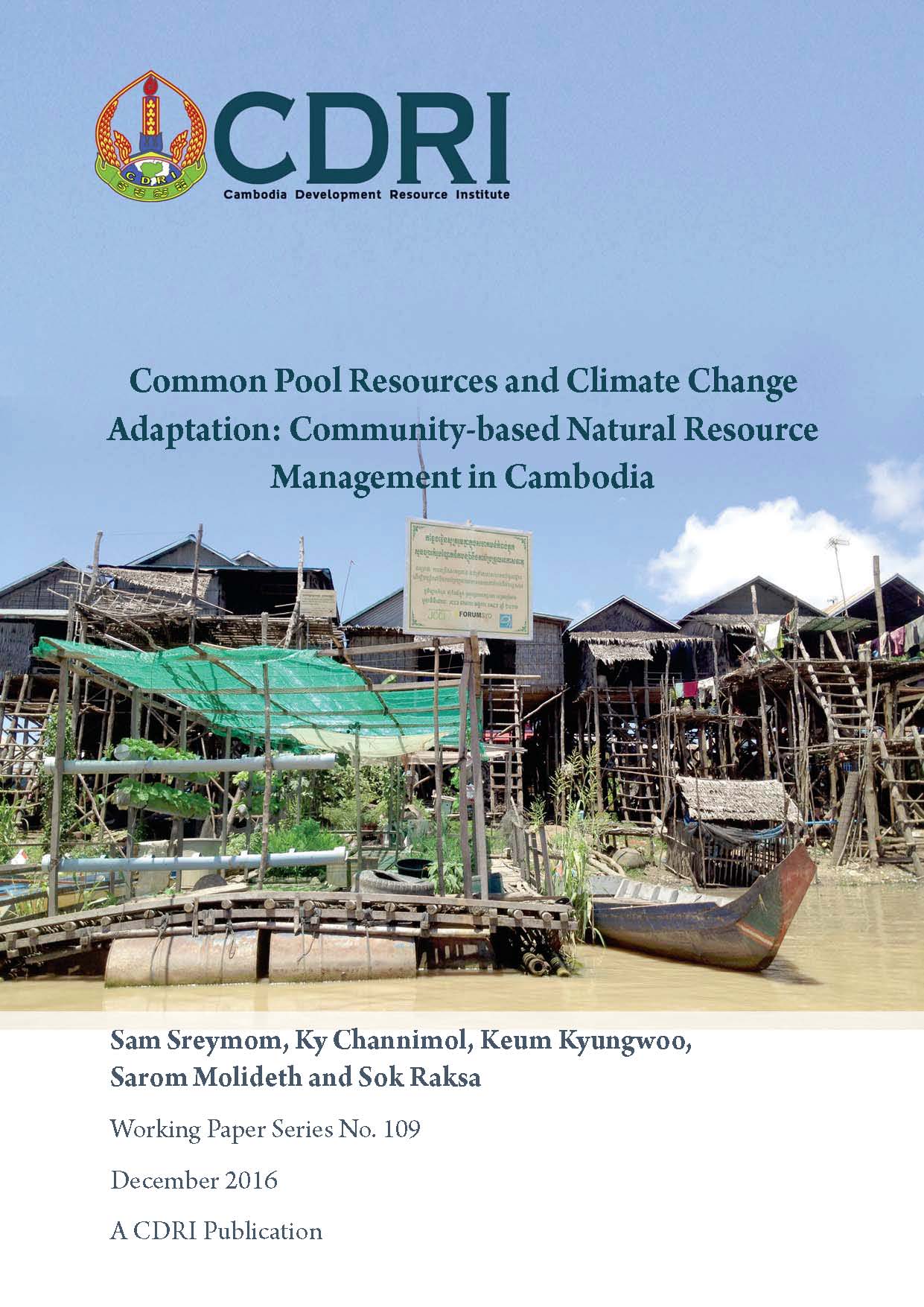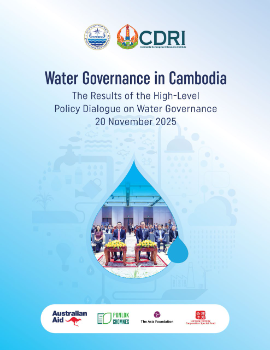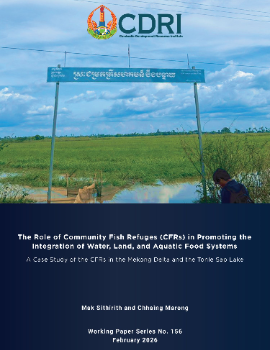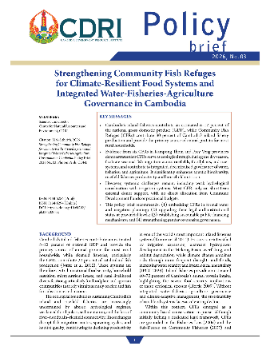
Common Pool Resources and Climate Change Adaptation: Community-based Natural Resource Management in Cambodia
Keyword: Climate change adaptation, community-based natural resource management, common pool resources, sustainability, climate change
Abstract/Summary
Using primary and secondary data sources, this study synthesises existing knowledge on community-based natural resource management (CBNRM) approaches in Cambodia. It identifies critical challenges and suggests ways to optimise the benefits of CBNRM in the context of climate change. Selected CBNRM initiatives include farmer water user communities, community fisheries, community-based ecotourism and community forestry. Factors contributing to the success and potential sustainability of resource communities are visible local economic benefits; ongoing institutional support including from government, NGOs and the private sector; and embedded local participation once benefits are secured. The challenges are grouped into three: technical, financial and governance. Limited knowledge, inadequate funding and technical support, intermittent participation and unequal access to resources are the biggest obstacles. Thus CBNRM practice is struggling to live up to the expectations of economic incentives, social benefits and environmental conservation. However, this approach is still advocated as the main mechanism for managing resources, with the condition that all stakeholders are performing their roles well and ongoing technical and financial supports are in place to sustain community activities.



